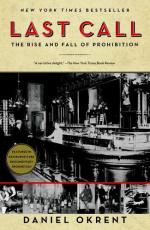|
This section contains 367 words (approx. 2 pages at 300 words per page) |

|
Despite the seemingly overwhelming support of national prohibition by the public and lawmakers during the 1920s, the Eighteenth Amendment had many opponents, even among supporters of temperance. Many politicians, including President Woodrow Wilson and former secretary of state Elihu Root, opposed the Eighteenth Amendment because of its unconstitutionality. Other "wet" groups, including the Association Against the Prohibition Amendment (AAPA), saw Prohibition as a threat to public policy. They believed the law wrongly expanded the role of federal government by granting them power to regulate individual behavior. They also believed the government's inability to enforce Prohibition laws was generating public disdain for the government.
One of the ironies of the anti-Prohibition movement was that its largest support came from women. Women's political activism had mainly been associated with the temperance movement, but just as many women fought against Prohibition. To their constituents, both pro- and antialcohol...
|
This section contains 367 words (approx. 2 pages at 300 words per page) |

|




